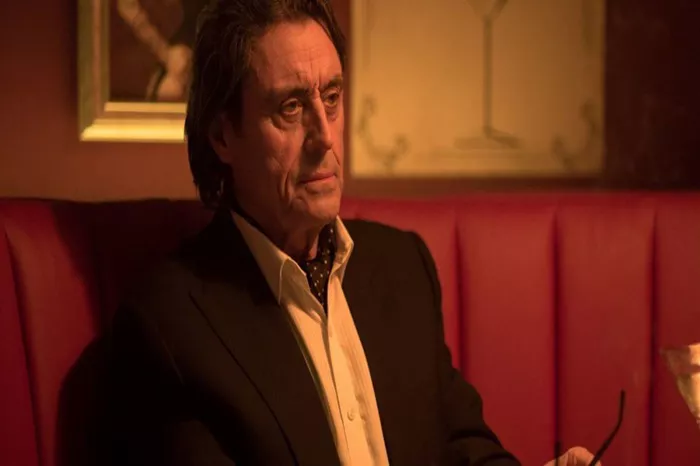The John Wick franchise has captivated audiences worldwide with its thrilling action sequences, intricate world-building, and morally complex characters. Among these characters is Winston, the enigmatic manager of the Continental Hotel, portrayed with sophistication and charm by Ian McShane. As anticipation builds for the next installment, John Wick 4, speculation swirls regarding Winston’s role. Is he truly a villain, or does his character possess layers yet to be explored? In this comprehensive analysis, we delve into Winston’s backstory, dissect his actions throughout the series, and explore the potential directions his character may take in the upcoming film.
Unraveling Winston’s Past
To comprehend Winston’s potential villainy in John Wick 4, it’s imperative to unravel the enigma of his past. From his first appearance in the franchise, Winston exudes an aura of authority and intrigue. As the manager of the Continental, he presides over a sanctuary for assassins, enforcing the strict rules that govern their world. Yet, beneath his polished exterior lies a history shrouded in mystery.
Little is known about Winston’s origins or how he ascended to his position of power within the assassin community. Speculation abounds regarding his past affiliations and the events that shaped his character. Some theories suggest that he may have once been an assassin himself, while others posit that he emerged from a background of wealth and privilege. Whatever the truth may be, Winston’s enigmatic past adds depth to his character and leaves audiences hungry for more insight into his motivations.
The Betrayal of John Wick
One of the most significant moments in Winston’s character arc occurs in John Wick: Chapter 2, when he betrays the titular assassin by ordering a contract on his life. This shocking act of betrayal sends shockwaves through the world of the Continental and raises questions about Winston’s loyalties and motives.
At first glance, Winston’s betrayal appears to be a calculated move driven by self-preservation. By siding with the High Table and ordering Wick’s assassination, he reinforces his position of power and demonstrates his willingness to uphold the rules of their world, no matter the cost. However, as the series progresses, it becomes clear that there may be more to Winston’s actions than meets the eye.
Navigating Moral Ambiguity
Central to the allure of the John Wick franchise is its exploration of moral ambiguity. Characters operate within a morally gray landscape, where alliances shift, and motives are often obscured. Winston epitomizes this complexity, straddling the line between friend and foe.
Throughout the series, Winston’s actions challenge conventional notions of heroism and villainy. While he may betray Wick, he also offers him sanctuary within the Continental, demonstrating a complex relationship rooted in mutual respect and professional courtesy. In this sense, Winston defies easy categorization as a villain, instead embodying the nuanced morality that defines the world of John Wick.
See also: Is John Wick Based On A True Story?
The Evolution of Winston’s Motivations
As John Wick 4 approaches, speculation regarding Winston’s role intensifies. Will he continue to operate in his morally ambiguous capacity, or will he emerge as a clear antagonist? The answer may lie in the evolution of his character’s motivations.
In previous installments, Winston’s actions are driven by a combination of self-interest and a desire to maintain order within the assassin community. However, as new threats emerge, and the stakes escalate, Winston’s motives may undergo a significant transformation. It’s conceivable that he could be compelled to align himself with forces opposed to Wick, either out of necessity or personal vendetta.
The Potential for Redemption
Despite his betrayals and morally questionable actions, there remains the possibility of redemption for Winston. Throughout the series, characters are given opportunities to atone for their sins and seek redemption for past transgressions. Winston may find himself faced with a similar choice in John Wick 4, forced to confront the consequences of his actions and decide where his loyalties truly lie.
Redemption arcs are a staple of storytelling, offering characters the chance to evolve and grow beyond their initial flaws. Winston’s journey may parallel that of other conflicted figures in the franchise, as he grapples with the consequences of his choices and strives to make amends for past wrongs.
Conclusion
As fans eagerly await the release of John Wick 4, the question of Winston’s villainy remains a topic of fervent speculation. Is he a villain, a hero, or something else entirely? The answer may ultimately depend on one’s perspective, as Winston embodies the moral complexity that defines the John Wick universe.
Whether Winston emerges as a clear antagonist or maintains his enigmatic status, one thing is certain: his role in John Wick 4 will be pivotal. His actions will have far-reaching consequences for both Wick and the larger world of the franchise, shaping the trajectory of the story in unexpected ways.
In the end, Winston’s true nature may remain a mystery, but it is precisely this ambiguity that makes him such a compelling and enduring character in the John Wick saga. As the franchise continues to evolve, audiences can expect Winston to play a central role in driving the narrative forward and exploring the depths of his character’s complexity.
Related topics:
Top 5 Reasons Why Caine Helped John Wick

